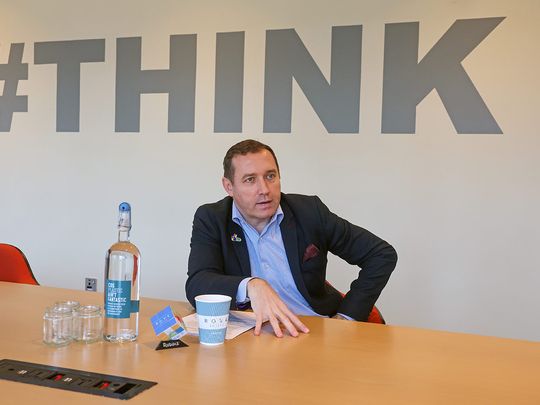Rove Hotels, a well-known UAE hotel brand, has set its sights on a major expansion plan. Over the next five years, Rove aims to have a network of 10,000 rooms, accompanied by a doubling of staff levels to 1,500 or more. According to Paul Bridger, Chief Operating Officer of Rove Hotels, these targets are not only ambitious but also achievable.
Bridger highlights that the focus in the GCC region is primarily on luxury hotels, with less than 5% dedicated to the mid-scale category where Rove operates. However, he believes there is significant potential for mid-tier brands like Rove, especially in markets like Saudi Arabia. He notes that while the majority of announcements in Saudi Arabia have centered around ultra-luxury and luxury segments, over 85% of travelers in the region prefer budget accommodations. They prefer to allocate more of their budget to experiences outside the hotel, given the abundance of attractions in destinations like the UAE.
In 2022, Rove Hotels had its best year ever, with occupancy levels averaging 90% during peak seasons. The group is forecasting double-digit growth year-on-year and currently has 3,500 rooms open, with 2,000 more under development. While Rove’s immediate focus is on expanding in the UAE and Saudi Arabia, it is also considering projects in Oman and other GCC countries.
Bridger expresses confidence in the potential for Rove Hotels in Saudi Arabia, including both main and secondary cities. He believes that Rove’s concept of affordable and quality accommodations would work well in these new secondary cities. In addition to its expansion plans, Rove has a hotel opening planned for Marjan Island in Ras Al Khaimah in March 2024, and there are also developments underway in Sharjah.
The Middle East hotel market has emerged as the strongest in the world this year, based on metrics such as occupancy, revenue per available room (RevPar), and average room rate. With its focus on providing excellent locations, top-notch facilities, and quality service without the need for a luxury product, Rove Hotels aims to cater to individuals who desire a more affordable yet enjoyable experience.
Rove has also made its foray into Dubai’s residential real estate market with Rove Home Downtown. The initial batch of branded residences sold out quickly, and plans for 1,500 units are in the pipeline. Bridger suggests that there is a gap in the market for individuals who desire a prime location and quality service without the luxury price tag, and Rove Hotels aims to fill that gap.
The group anticipates substantial expansion in the future, driven by growing leisure and business travel, including an increasing number of digital nomads. Rove Hotels has transformed its properties into vibrant community hubs that foster work, social interaction, and leisure. This shift is evident with the launch of Rove’s podcast and photo/video studios, as well as the introduction of Rove Gamer Caves, the first hotel rooms in the Middle East specifically designed for gamers.
Rove’s ambitious expansion plans also align with its commitment to supporting local employment. As part of its growth strategy, Rove aims to double its direct employee numbers from around 700 to over 1,500. Bridger emphasizes the importance of operational roles in supporting future growth, as well as the emphasis on hiring and developing local talent in the UAE and Saudi Arabia.
In summary, Rove Hotels has set ambitious targets for expansion in the next five years, aiming to have 10,000 rooms in its network and a staff of over 1,500. The brand sees significant potential in the mid-scale category and aims to cater to budget-conscious travelers. Rove’s successful track record, commitment to quality service, and innovative offerings position it well for future growth in the Middle East hotel market.

I have over 10 years of experience in the field of cryptocurrency and blockchain technology. I have attended numerous conferences and events around the world, and my work has been featured in major publications such as CoinDesk, Bitcoin Magazine, and Yahoo Finance.

